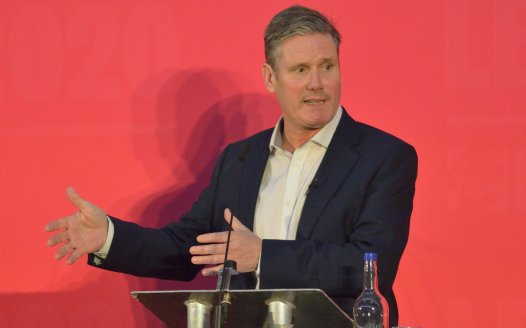Guidance grants schools leeway to push anti-LGBT religious views
Posted: Fri, 18th Sep 2020
New guidance for schools in England will allow faith schools to teach that same-sex relationships and gender reassignment are not permitted by the religious worldviews they promote.
Guidance from Ofsted, published yesterday, will allow schools to teach "the tenets of any faith on the protected characteristics", which include sexual orientation and gender reassignment.
That guidance says schools may, for example, "explain that same-sex relationships and gender reassignment are not permitted by a particular religion".
It adds that schools which do this "must also explain the legal rights LGBT people have under UK law, and that this and LGBT people must be respected".
Relevant NSS research
National Secular Society research has previously shown that granting faith schools freedom to teach RSE in accordance with their religious ethos provides space for discriminatory practices.
In 2018 the NSS found that many faith schools had policies and practices that were either implicitly or explicitly disparaging of individuals on the basis of protected characteristics.
For example, some schools taught that homosexual acts were wrong or that homosexuality itself was "disordered".
A new curriculum on relationships and sex education became compulsory in England's schools this month.
Inspectors may avoid asking pupils about LGBT issues
The guidance on the teaching of protected characteristics in schools could also see schools marked down by inspectors for failing to teach about LGBT relationships.
But separate guidance also published as part of the same package suggests inspectors should avoid asking about LGBT issues where schools request it to protect their religious sensibilities.
It says Ofsted "recognise(s) that some school leaders do not wish inspectors to ask pupils certain questions, for example about lesbian, gay, bisexual and transgender (LGBT) issues".
It adds that inspectors will not ask pupils questions about a topic that a school "reasonably believes is sensitive for its pupils" if the school, at primary or secondary level, asks them not to do so.
In secondary schools this will mean inspectors will not be able to demonstrate that the school is meeting its obligations under the guidance.
NSS comment
NSS chief executive Stephen Evans said: "It's welcome that there will be a degree of accountability for schools which refuse to teach about LGBT relationships.
"But it's concerning that faith schools will be given leeway to teach that same-sex relationships and gender reassignment aren't permitted by the religious worldviews that they exist to promote.
"It's wholly incongruent for Ofsted to penalise schools that refuse to teach about LGBT people, but turn a blind eye when faith schools teach that being LGBT is morally wrong.
"All pupils should be entitled to study in a welcoming and accepting school that doesn't make them feel ashamed about who they are. Schools that can't meet this basic standard aren't worthy of state funding."
Notes
- In an equality impact assessment, Ofsted considered the possibility that its guidance would lead to indirect discrimination against LGBT pupils, "because schools that do not teach about LGBT issues will not automatically receive a negative impact on their inspection". However, on balance it concluded that the possibly negative impact on inspection reports of such schools would address this concern.
- Ofsted inspectors have faced criticism from some faith schools and parents hostile to LGBT inclusive education when they have tried to gauge pupils' understanding of these issues.
- Meanwhile further guidance also gives inspectors advice on dealing with unlawful segregation by sex in mixed-sex schools, an issue the NSS has long campaigned on.
Write to your MP: Protect LGBT-inclusive education
Ask your MP to take a stand for children's right to comprehensive and inclusive RSE.









